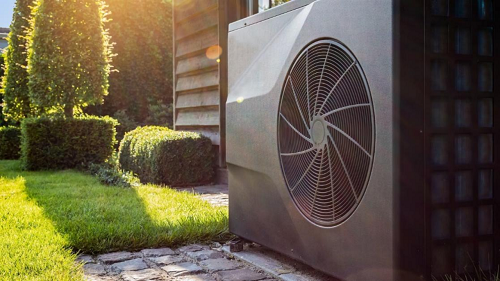Tesla has already launched solar panels and home batteries for home users, and it is clear that home heat pumps are Tesla’s next battleground.
Electric heaters are more efficient. An electric heater uses one unit of electricity to generate one unit of heat, while a heat pump is 2 to 3 times more efficient, and can reach up to 5 times more efficiently under ideal conditions.

Home heat pumps to replace gas burner boiler
However, the initial adoption cost of a heat pump is higher than that of other alternatives. The cost of purchasing and installing a heat pump may be 2-4 times that of a gas boiler, and the later use costs will also be higher.
Taking the UK as an example, about 85% of people in the country currently use gas wall-mounted boilers for heating.
As natural gas prices rise, British people are beginning to consider switching to electric heating. The most direct alternative is a heat pump.
The UK government aims to install 600,000 new heat pumps every year by 2028. But heat pumps will inevitably increase demand for electricity, which is three times more expensive than natural gas in the UK and heating with electricity costs about twice as much as heating with natural gas.
In addition, global heat pump supply and installation may require more than 1.3 million workers by 2030, almost three times the current number, potentially creating a shortage of skilled labor, especially for installers.
Special training programs and the inclusion of heat pumps in the certification of plumbers and electrical engineers could help avoid the risk of skilled labor shortages
Due to these initial bottlenecks, the popularization of household heat pumps requires government policy support. More than 30 countries already offer financial incentives for heat pumps, which currently account for more than 70% of heating needs.
Many of these countries also provide additional support to low-income households, where the energy savings of heat pumps are significant, ranging from 2% to 6% of household income.
IEA Director Fatih Birol said: “All the ingredients are in place for the heat pump market to take off, reminiscent of the trajectory of other key climate technologies such as solar photovoltaics and electric vehicles. “
”Heat pumps present a key component of the response to energy sustainability. affordability, security of supply and the climate crisis. Today, policy measures are in place, but they urgently need to be stepped up to enable heat pumps to realize their huge economic and environmental potential.”
 +8613906047998
+8613906047998


